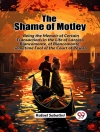Charles Dickens’ novel ‘Our Mutual Friend’ is a rich tapestry of social commentary and intricate character studies set in Victorian London. The book portrays the stark divide between the upper and lower classes, with themes of wealth, deceit, and redemption woven throughout. Dickens’ signature detailed descriptions and vivid characterizations bring to life the diverse array of personalities populating the story, making the reader feel as though they are walking the streets of London alongside the characters. The novel also touches on issues of identity and self-discovery, creating a multi-layered narrative that keeps readers engaged from start to finish. ‘Our Mutual Friend’ stands as a testament to Dickens’ keen observation of society and his ability to craft compelling stories that resonate across generations. Written during a period of intense social change in 19th century England, Dickens’ personal experiences and keen insights into human nature undoubtedly influenced the themes and characters within the novel. His dedication to shedding light on societal injustices and championing the underprivileged shines through in ‘Our Mutual Friend’, making it a must-read for anyone interested in exploring the complexities of Victorian society and the human condition.
Mengenai Pengarang
Charles Dickens (1812–1870), one of the foremost novelists in the English language, is renowned for his vivid storytelling and profound social commentary. Born in Portsmouth, England, Dickens rose from a humble childhood affected by his family’s financial difficulties to become a preeminent literary figure of the 19th century. Through his prolific writing career, he published iconic works such as ‘Oliver Twist, ‘ ‘A Tale of Two Cities, ‘ and ‘Great Expectations.’ His novel ‘Our Mutual Friend, ‘ first published in serial form between 1864 and 1865, stands as his last completed work, and it epitomizes his literary style, replete with satire, complex characterizations, and critique of the social stratifications of Victorian society. Dickens’s acumen in exploring themes of social injustice, poverty, and the human condition through a narrative lens has left an indelible mark on literature. His ability to intertwine humor with empathy toward society’s most vulnerable, and to tell stories that resonate with both resonance and entertainment, has secured his lasting legacy. Dickens’s characters and stories have transcended time, continuing to touch readers and inspire adaptations across diverse media, further cementing his place as not just a storyteller but also a powerful voice for social change.












